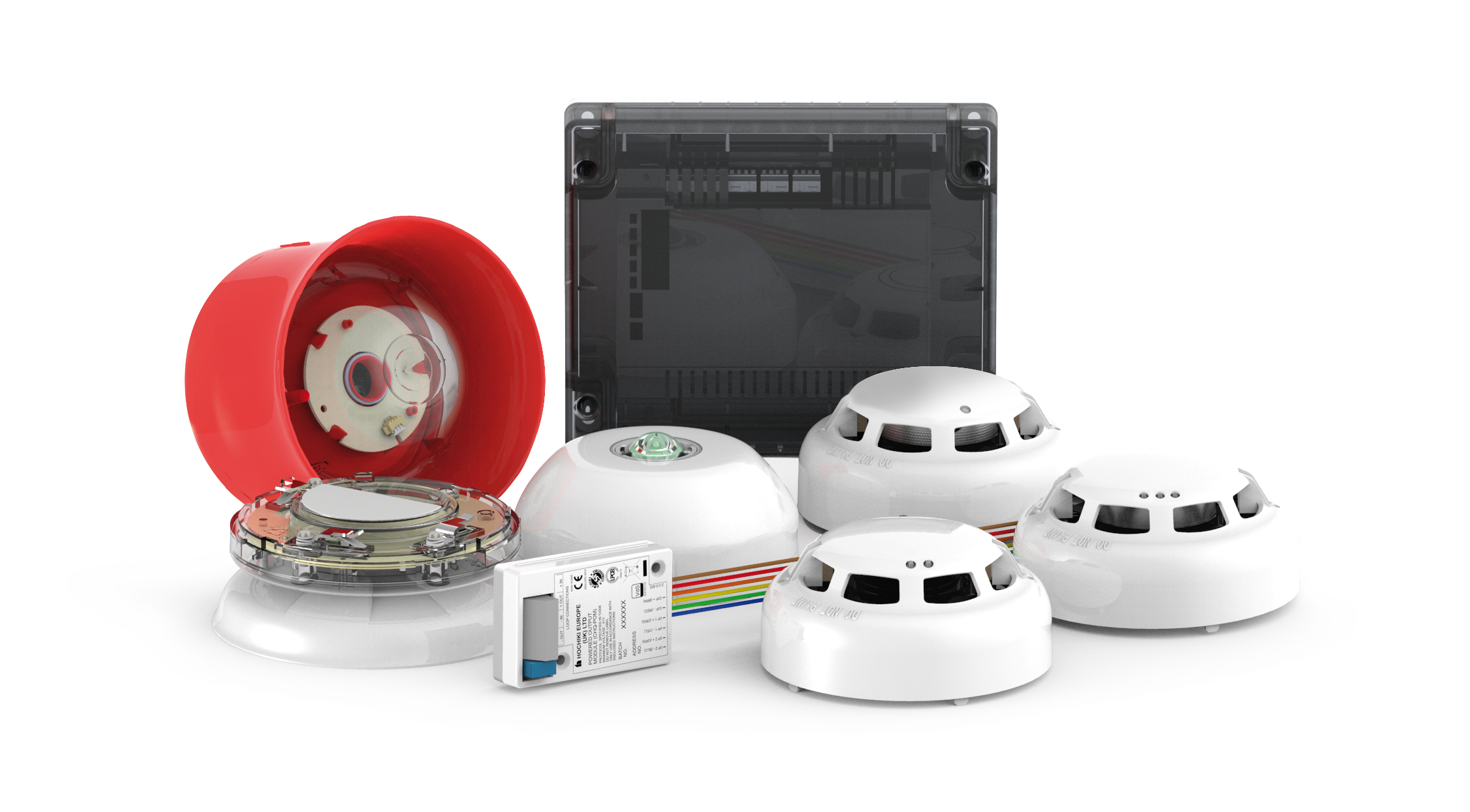Hochiki provides leading Italian Hospital with fire detection system
Celebrating its centenary, the IRCCS Sacro Cuore Don Calabria Hospital is in Negrar, Verona, and thanks to the expert team and technology in place, it is considered one of Italy’s top medical facilities, and in fact at European level it is recognised as a leader in the healthcare sector.
The hospital is made up of eight buildings with more than 30 medical departments, operating theatres, offices, canteens, and conference rooms. In recent years, the hospital has undergone considerable renovation and expansion and along with this the improvement and adaption of the life safety system. The update to the fire detection system is to ensure the best possible protection for the thousands of people who visit the facility every day as well as the preservation of property, patient data and vital medical equipment.
The healthcare sector has a duty of care for its patients, staff and visitors as well as having to provide constant protection of its property and assets from the threat of fire. After extensive assessments and a rigorous qualifying stage by the Hospital technical team and Amperia srl, the installation company, Hochiki fire detection systems and equipment were found to offer the best solution and offered the highest quality standards for the hospital.
Hochiki is a well-respected name in healthcare across Europe and famed for its reliability in Italy, particularly when it comes to reduction in false alarms. Minimising this risk was critical to the hospital who wanted to avoid unnecessary and hugely problematic evacuation situations, especially where some patients may find moving around independently difficult and, in some cases, impossible, especially for patients in critical care departments.
Following consultation, 26 fire detection panels, including Syncro and Hochiki’s Latitude system, and two Vision remote panels were installed in the hospital, all of which were networked.
The project brief stated that it was important the systems and any devices used must be installed with minimum impact on the day to day running of the hospital. Hochiki ESP range was recommended because these devices have been specifically designed to be quick and easy to install and therefore ensured minimal disruption was achieved by the team at Amperia srl.
Another priority for the project was that any fire detection system needed to be able to alert every person in the building to an emergency, including visually and hearing-impaired visitors. Hochiki’s range of VADs (visual alarm devices) were used to provide a visual indication of an alarm condition to those people who would not normally be alerted to a fire by standard audible-only devices such as sounders and bells.
The final key priority was the ability for the entire system to be continuously monitoring 24 hours a day. During the consultation period between the installers and Hochiki, the fire detection system was designed to provide 24/7 monitoring. This was thanks to the I/O modules and technological fault alarm signals which were also implemented and connected to the fire control panel loop. These were then monitored by the personnel 24 hours a day thanks to two supervision systems, one for the fire detection system and one for the technological alarms.
This project at the IRCCS Sacro Cuore Don Calabria Hospital was one of the largest and most complex projects that Hochiki have ever been involved in Italy involving the installation of multiple detectors, Detectors, 10 fire extinguishing systems, 14 gas detection panels and 10 aspirating panels.
Davide Montoli, Product Manager at Hochiki Italia, explains: “An interesting aspect of our systems is the “Bridge” communication between different generations of fire alarm control panels. In the case of this Hospital, the possibility of connecting the new L@titude control panels to the existing network of Syncro control panels made it possible to expand the system even though many years had passed since the installation of the original control panel. In fact, Hochiki’s L@titude platform can adapt its communication protocol to ensure backward compatibility with previous generation control panels”
Thanks to the expert Hochiki team working closely with both the installer and the technical team at the hospital a high-quality installation was achieved, with the best products on the market installed ensuring that fire safety for patients and staff is kept as a top priority.
Loris Fornaser, Technical Manager at the installer company Amperia srl, commented: “As you can imagine the fire safety standards of this project were extremely high due to the complex environment in which a hospital operates. This led us to choose a technologically advanced life safety product that would guarantee the client excellent performance and long-term reliability. The manufacturer’s technical support was always precise and Hochiki proved to be the ideal solution”
